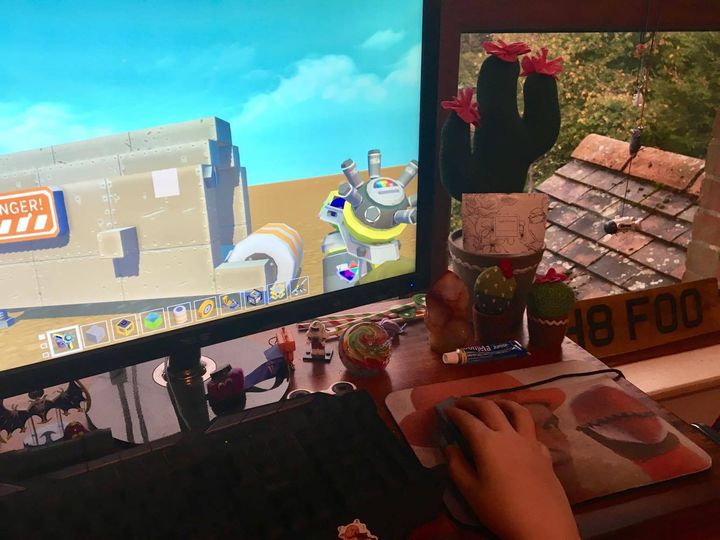Respectful parenting and parenting for social change is where my main focus is now, and of course radical unschooling is all those things and more. For me, that all begins and ends with being a good mum in the eyes and minds of my children, and going forward being remembered as a kind respectful and happy mum—someone they could trust implicitly, and who was their partner and friend.
Hopefully they will then carry that forward to how they treat their children, regardless of what the current trend is, or fears they have, or the current scaremongering circulating. Even if they don't have children of their own, my hope is that they treat and speak to all children that they come in contact with throughout their lives with the same respect and kindness that they afford their partners and friends, and that they treat them like the people they are.
photo by Jihong Tang
(her son's painting, left)



















